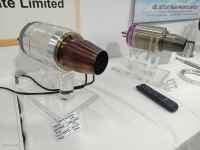Indian companies working on micro/small turbojet engines:
Small Turbojet Engine Developments in India for UCAV & Missile Applications
- Thread starter Himanshu
- Start date
Tuning the kN device .
— Prateek Dhawan (@PattyInnovate) January 17, 2025
Startup could still be smoother, but every tweak gets us closer. Progress is progress—we’re getting there! pic.twitter.com/DsgDgUtga2
View attachment DG propulsion DG J40_enlarged_1kN_1.mp4
View attachment DG propulsion DG J40_enlarged_1kN_2.mp4
Got the kN device to do a little dance today!
— Prateek Dhawan (@PattyInnovate) January 18, 2025
Ran it at ~75% throttle—stable, responsive, and sounding better with every test. Tuning's paying off! pic.twitter.com/EN1ztI36FU
View attachment DG propulsion DG J40_enlarged_1kN_3.mp4
Aero engine agreement signed between @BharatForgeLtd & @VEDAAeronautics pic.twitter.com/5AfnTGeBDH
— VEDA Aeronautics (@VEDAAeronautics) February 11, 2025


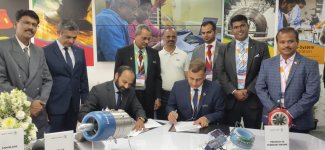

This engine below is the same Vedaa Aeronautics engine ?


Saw this beautiful 3kg jet engine capable of producing 42kg thrust. Wanted to buy it until I heard the price tag of 16L. 70-80% parts are indegenised with the main compressor still being Czech IP. Sales guy explained difficulties in producing sustained thrust past 800 celcius pic.twitter.com/LVugonGVA0
— TrueAbstraction (@SafalAadmi) February 14, 2025
From what I understand Veda Aeronautics' primary interest/expertise is in loitering munition. They had to indigenize this engine for their LM. This is why Kalyani-Veda Aeronautics deal is win-win.This engine below is the same Vedaa Aeronautics engine ?
With Kalyani's help Veda can further indigenize their sub 100 Kgf turbojets. When they make LM's that would need 120-400 Kgf turbojet engines they can easily access Kalyani's portfolio.
Excited to announce that DG Propulsion has signed a Strategic Agreement with Bharat Dynamics Limited (BDL) to collaborate on jet turbine engines for loitering munitions, high-speed UAVs, and advanced propulsion systems.
— Prateek Dhawan (@PattyInnovate) February 21, 2025
A big step toward strengthening India's defense…
The kN device ran full tilt for 30 minutes straight—no breaks, no hiccups.
— Prateek Dhawan (@PattyInnovate) March 2, 2025
The more we test, the more data we collect, and the better our engines get.
Testing nahi rukni chahiye. pic.twitter.com/Sva33PHiNA
The kN device ran full tilt for 30 minutes straight—no breaks, no hiccups.
— Prateek Dhawan (@PattyInnovate) March 2, 2025
The more we test, the more data we collect, and the better our engines get.
Testing nahi rukni chahiye. pic.twitter.com/Sva33PHiNA
These engines will be flying soon, and when they do, the impact will be clear.
— Prateek Dhawan (@PattyInnovate) March 6, 2025
No Plan B, just absolute reliability and de-risking for our customers, partners, and the nation. We stand behind our hardware—no matter how much testing it takes.
Latest test runs—throttle control… pic.twitter.com/eg7zFsRnPk
We have any more info on the PBS India made engines status ? they seem to take part in recent expos but hardly seen much mentionIndian companies working on micro/small turbojet engines:

Meet PBS India at AERO INDIA 2025
Meet PBS India at AERO INDIA 2025PBS India invites you to join us at Aero India 2025, Asia@s premier aerospace and defense exhibition, where we will showcase our cutting-edge technologies designed to revolutionize aerial and defense systems.
Yes, they were participating in one of those seminars. They have started some licence production if I remember correctly.We have any more info on the PBS India made engines status ? they seem to take part in recent expos but hardly seen much mention

Meet PBS India at AERO INDIA 2025
Meet PBS India at AERO INDIA 2025PBS India invites you to join us at Aero India 2025, Asia@s premier aerospace and defense exhibition, where we will showcase our cutting-edge technologies designed to revolutionize aerial and defense systems.www.pbsindia.com
Bengaluru-based aerospace startup Nabhdrishti Aerospace has raised $3 million in a seed funding round led by Accel, with participation from IIMA Ventures and other existing investors. The company is working on fuel-flex gas turbines for power generation and aircraft propulsion. pic.twitter.com/ckFr9bD2bW
— Frontliner (@FrontlinerUV) March 26, 2025
Bengaluru-based aerospace startup Nabhdrishti Aerospace has raised $3 million in a seed funding round led by Accel, with participation from IIMA Ventures and other existing investors. The company is working on fuel-flex gas turbines for power generation and aircraft propulsion.
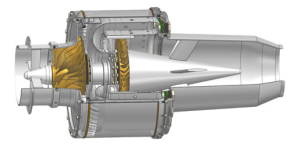
Well I know very little about this stuff , here RDE is rotating detonation engine presented by Dr V Ramanujachari. This is actually IIT Madras work, tested at drdl. cc @Gautam @Ashwin @Rajput Lion

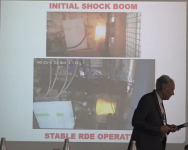


Once we master this tech, it's going to revolutionize our Space & Defense sector(jet engines, missile et al). Very nice findWell I know very little about this stuff , here RDE is rotating detonation engine presented by Dr V Ramanujachari. This is actually IIT Madras work, tested at drdl. cc @Gautam @Ashwin @Rajput Lion
View attachment 42202
View attachment 42203

Well I know very little about this stuff , here RDE is rotating detonation engine presented by Dr V Ramanujachari. This is actually IIT Madras work, tested at drdl. cc @Gautam @Ashwin @Rajput Lion
View attachment 42202
View attachment 42203
Indian Start-up Prime Tooling working on various engines for missile including pulse detonation engine.
— Varun Karthikeyan (@Varun55484761) April 8, 2025
Recently they announced successful development of a complete missile engine and solid booster system pic.twitter.com/bjYx38BcF2


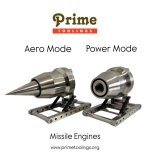

SiriNor tests electric jet engine in India
By Ben Sampson
25th April 2025

Norwegian-Indian company Sirinor's is developing a tip-driven propulsion system using distributed edge-mounted motors rather than a hub mounted engine (Image: SiriNor)
SiriNor has successfully tested what it claims is the world’s first all-electric jet engine at its facility in Pune, India. The test on April 22 validated the engine at Technology Readiness Level 6 under NASA’s framework.
The Norwegian aerospace company with an Indian subsidiary reported that its engine prototype exceeded the design intent of 40,000 RPM and 10 kgf thrust as measured by a load cell during the ground test. The company sees this as a critical step toward full commercialization.
“This ground test is not just a technical milestone. It’s a moment of validation for our amazing team and our common vision,” said Ivar Aune, chairman and CEO of SiriNor.

The company is developing a tip-driven propulsion system using distributed edge-mounted motors rather than a hub-mounted engine. Built for thrusts ranging from 1kN to 90+ kN, the engine design aims to support ranges exceeding 4,000 km.
SiriNor is targeting UAV engine commercialization by mid-2026, followed by certification for larger platforms including ground-effect vehicles and aircraft.
The company has raised early-stage funding, reaching a US$20 million valuation following the successful test. SiriNor plans to raise another USD$5 million before the summer this year.

According to SiriNor, its engine architecture removes the need for combustion chambers and high-cost alloys, potentially cutting manufacturing costs by 30% and maintenance costs by up to 40% for aircraft engines. The power source-agnostic engine can work with both battery and hydrogen electric energy sources.
“Our engine architecture is designed for flexibility. It’s compatible with both battery and hydrogen electric energy sources, supports thrust ranges for everything from drones to commercial jets, and its simplicity brings unprecedented efficiency to aerospace manufacturing,” said Abhijeet Inamdar, co-founder of SiriNor and CEO of SiriNor India.
SiriNor said it has seven letters of intent with global drone, ground-effect vehicle, and small aircraft developers and operators. The company employs engineers from both Norway and India, with team members having previous experience at companies including Airbus, Tata Vistara, GE, Pratt & Whitney, and Equinor.
SiriNor tests electric jet engine in India | Aerospace Testing International
By Ben Sampson
25th April 2025

Norwegian-Indian company Sirinor's is developing a tip-driven propulsion system using distributed edge-mounted motors rather than a hub mounted engine (Image: SiriNor)
SiriNor has successfully tested what it claims is the world’s first all-electric jet engine at its facility in Pune, India. The test on April 22 validated the engine at Technology Readiness Level 6 under NASA’s framework.
The Norwegian aerospace company with an Indian subsidiary reported that its engine prototype exceeded the design intent of 40,000 RPM and 10 kgf thrust as measured by a load cell during the ground test. The company sees this as a critical step toward full commercialization.
“This ground test is not just a technical milestone. It’s a moment of validation for our amazing team and our common vision,” said Ivar Aune, chairman and CEO of SiriNor.

The company is developing a tip-driven propulsion system using distributed edge-mounted motors rather than a hub-mounted engine. Built for thrusts ranging from 1kN to 90+ kN, the engine design aims to support ranges exceeding 4,000 km.
SiriNor is targeting UAV engine commercialization by mid-2026, followed by certification for larger platforms including ground-effect vehicles and aircraft.
The company has raised early-stage funding, reaching a US$20 million valuation following the successful test. SiriNor plans to raise another USD$5 million before the summer this year.

According to SiriNor, its engine architecture removes the need for combustion chambers and high-cost alloys, potentially cutting manufacturing costs by 30% and maintenance costs by up to 40% for aircraft engines. The power source-agnostic engine can work with both battery and hydrogen electric energy sources.
“Our engine architecture is designed for flexibility. It’s compatible with both battery and hydrogen electric energy sources, supports thrust ranges for everything from drones to commercial jets, and its simplicity brings unprecedented efficiency to aerospace manufacturing,” said Abhijeet Inamdar, co-founder of SiriNor and CEO of SiriNor India.
SiriNor said it has seven letters of intent with global drone, ground-effect vehicle, and small aircraft developers and operators. The company employs engineers from both Norway and India, with team members having previous experience at companies including Airbus, Tata Vistara, GE, Pratt & Whitney, and Equinor.
SiriNor tests electric jet engine in India | Aerospace Testing International
New Delhi based propulsion startup Green Aero Propulsion has test fired its newly developed hydrogen fuelled micro jet engine, 'The Blue Dragon'. @alpha_defense pic.twitter.com/O5sSgU4RNp
— Frontliner (@FrontlinerUV) April 27, 2025
View attachment Green Aero propulsion blue dragon.mp4

